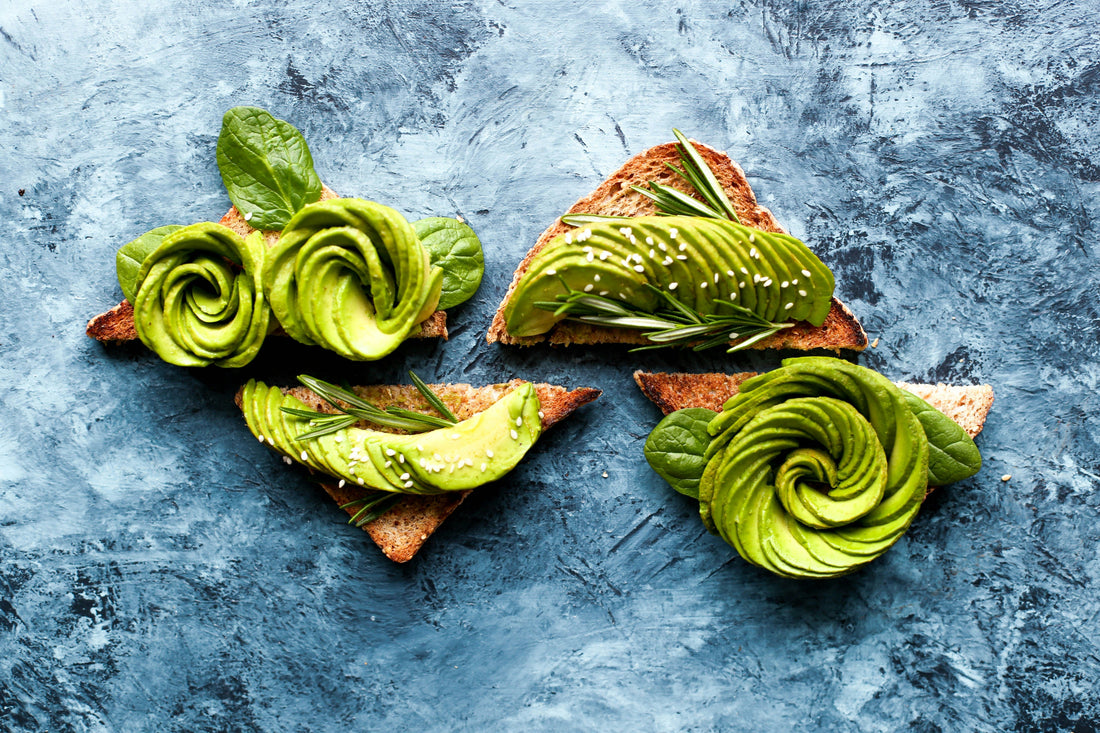The skin, of course, is our body's first and strongest layer of protection from external factors, including the weather (1). So how do we keep our skin luscious and hydrated in the winter? A healthy diet paired with regular exercise can help to boost protection for our skin as the season's transition (2). Skin supplements can also be taken alongside your healthy lifestyle and diet to help improve your winter skincare routine.
Dry skin during winter
During winter, our skin is exposed to low temperatures, low humidity, and harsh winter winds. These result in dry air that draws moisture from our skin (3). As a result, you might experience various skin conditions such as dry, itchy or flaky skin.
While our skin naturally produces water to protect itself (4), bolstering your skin's moisture level during winter is one of the most effective ways to keep it healthy.
Winter skin care
Begin your winter skin care routine by getting to know your skin, and observing the changes it undergoes on the daily (4). Knowing your own skin type and what it needs can help determine your hydration needs. Hydration is essential in basic skin care as it can prevent the formation of fine lines. Here are ways you can keep your skin moisturised:
Avoid long baths
It can be a good idea to avoid taking too many hot showers as it can dry your skin and exacerbate the effects of dry skin(6). Excessive heat from hot baths can also result in rashes flaring up (21).
Instead, try limiting yourself to one 5-10 minute bath per day. This can help make sure the skin is not stripped of its natural oils and moisture (5).
Moisturise regularly
Regular moisturisation can help to seal in moisture in the skin cold weather (6). Protect your face and hands during winter months by switching to heavier cream-based moisturisers for extra protection. It also helps to moisturise right after getting out of the shower.
Keep humidity levels up
Consider using a humidifier to increase humidity indoors (20). This may reduce the effect of dry skin on your skin, nose, and lips.
Eat well
Maintaining a healthy diet that contains the right nutrients can help boost your skin's health. Some of these healthy options include carrots, spinach, berries, and salmon or other fatty fish (22). It also helps to drink a lot of water to keep hydrated as skin health depends on the nourishment it receives from within.
On top of a consistent winter skin care routine and balanced diet, you may consider taking skin supplements that are personalised to your specific needs.
Skin supplements for skin health
A personalised vitamin subscription can help support your skin and help those with sensitive skin issues. Here are some supplements to consider for skin health during winter:
Zinc
Zinc is a mineral that is present in our skin (7). It helps maintain skin health by contributing to the production of collagen, the most abundant component of the skin, which determines its structure and enables it to perform numerous functions (8).
Zinc skin benefits include promoting skin repair and healing by helping maintain the integrity of our skin's mucosal membranes (9). Consider adding zinc supplements to your winter skin care routine.
Astaxanthin
Astaxanthin is a carotenoid that is naturally produced by a number of bacteria, microalgae, and yeasts. It has a diverse function in skin biology, helping in the maintenance and promotion of skin health, elasticity, and hydration (10).
Among the many health benefits of astaxanthin includes protecting skin elastin from breaking down and helps avoid the formation of fine lines while improving the skin's internal structure. Astaxanthin supplements for your skin can help reduce skin irritation too (11).
B-complex
Vitamin B-complex is a collection of B vitamins that are water soluble and support skin health (12). It also supports a healthy stress response in the body, which can impact skin health.
An easy way to get your daily dose of vitamin B-complex is through food sources and supplements, since they are water-soluble (13).
Vitamin C
Our skin contains high concentrations of vitamin C. It stimulates production of collagen and helps in protecting the skin from ultraviolet (UV) rays damage (14).
Vitamin C also helps decrease the risk of dry skin, and promotes healthy skin conditions with the production of lipids that can prevent water loss in skin (15). Adding vitamin C supplements can help support collagen formation in the skin and assist in the healing of minor body tissue injuries.
Cranberry
Cranberry contains proanthocyanidins (16) that help in maintaining connective tissue health by releasing endothelial cells that promote collagen formation (17).
You may consider adding cranberry supplements, which are rich in antioxidants and vitamin C, to your personalised vitamin subscription for your skin during winter.
Collagen
Collagen is the most abundant protein in our body, which connects our tissues to other tissues. Our bones, skin, muscles, tendons and cartilages are all made up of collagen (18).
Collagen helps the skin retain water, leading to smooth, firm, and strong skin (19). Adding collagen supplements to your skin care routine can help maintain your skin's structure, firmness, and elasticity, as well as improve moisture.
Biotin
Biotin is a water-soluble B-vitamin that is essential in various important body functions such as metabolism and gene expression20. Biotin deficiency often leads to skin problems and may be avoided by adding biotin supplements to your well-rounded diet.
Keeping your skin healthy during winter can help it prepare for the coming warmer months. One of the perks of a tailored vitamin subscription is being able to personalise your vitamin intake according to your preferences and needs. Add the best skin supplements to your multivitamin subscription from Vitable Australia today. Maintain healthy, glowing skin with these multivitamin packs which come with delivery right to your doorstep. Plan and receive your very own vitamin delivery now!
Find out more about other areas that the above supplements can help you with:
Zinc | Astaxanthin | B complex | Vitamin C | Cranberry | Collagen | Biotin
*Always read the label. Follow the directions for use. If symptoms persist, talk to your health professional. Vitamin and/or mineral supplements should not replace a balanced diet.
References:
- Health Direct Content Team. “Skin”. Health Direct: Healthdirect.Gov.Au. Published 2021 on https://www.healthdirect.gov.au/skin. Accessed September 27, 2021.
- Government of Western Australia Department of Health Content Team. “Staying healthy in winter”. Healthy West Australia: Healthywa.Wa.Gov.Au. Published April 20, 2018 on https://www.healthywa.wa.gov.au/Articles/S_T/Staying-healthy-in-winter. Accessed September 27, 2021.
- Rasmussen, B. “6 Ways to Protect Your Skin During Cold Weather”. Intermountain Healthcare: Intermountainhealthcare.Org. Published October 27, 2017 on https://intermountainhealthcare.org/blogs/topics/live-well/2017/02/6-ways-to-protect-your-skin-during-cold-weather/. Accessed September 27, 2021.
- Sparks, D. “Healthy Skin, Even During Winter Weather”. Mayo Clinic News Network: Newsnetwork.Mayoclinic.Org. Published January 28, 2016 on https://newsnetwork.mayoclinic.org/discussion/healthy-skin-even-during-winter-weather/. Accessed September 27, 2021.
- Harvard Health Publishing Content Team. “What to do about dry skin in winter”. Harvard Medical School: Health.Harvard.Edu. Published February 1, 2011 on https://www.health.harvard.edu/womens-health/what-to-do-about-dry-skin-in-winter. Accessed September 27, 2021.
- MTI College Content Team. “Tips for Taking Care of Your Skin During Winter”. MTI College: Mitcollege.edu. Published February 27, 2019 on https://mticollege.edu/blog/paul-mitchell/cosmetology/tips-for-skin-during-winter. Accessed September 27, 2021.
- Angelo, G. "Minerals and Skin Health”. Oregon State University: Lpi.Oregonstate.Edu. Published January 2013 on https://lpi.oregonstate.edu/mic/health-disease/skin-health/minerals. Accessed September 27, 2021.
- Bolke, L., Schlippe, G., Gerß, J., & Voss, W. “A Collagen Supplement Improves Skin Hydration, Elasticity, Roughness, and Density: Results of a Randomized, Placebo-Controlled, Blind Study”. US National Library of Medicine: Ncbi.Nlm.Nih.Gov. Published October 17, 2019 on https://www.ncbi.nlm.nih.gov/pmc/articles/PMC6835901/. Accessed September 27, 2021.
- National Institutes of Health Content Team. “Office of Dietary Supplements - Zinc”. National Institutes of Health: Ods.Od.Nih.Gov. Published March 26, 2021 on https://ods.od.nih.gov/factsheets/Zinc-HealthProfessional/. Accessed September 27, 2021.
- Davinelli, S., Nielsen, M., & Scapagnini, G. “Astaxanthin in Skin Health, Repair, and Disease: A Comprehensive Review”. US National Library of Medicine: Ncbi.Nlm.Nih.Gov. Published April 22, 2018 on https://www.ncbi.nlm.nih.gov/pmc/articles/PMC5946307/. Accessed September 27, 2021.
- Tsukahara, H., Matsuyama, A., et. al. “Effects of Intake of Astaxanthin Contained Drink on Skin Condition”. Japanese Journal of Complementary and Alternative Medicine: Jstage.Jst.Go.Jp. Published 2016 on https://www.jstage.jst.go.jp/article/jcam/13/2/13_57/_article/-char/en. Accessed September 27, 2021
- Better Health Channe Content Teaml. "Vitamin B". Better Health Channel: Betterhealth.Vic.Gov.Au. Published May 14, 2020 on https://www.betterhealth.vic.gov.au/health/healthyliving/vitamin-b. Accessed on September 27, 2021.
- Tri-City Medical Center Content Team. “B Vitamins: Your Secret to Good Skin Health”. Tri-City Medical Canter: Tricitymed.Org. Published October 1, 2019 on https://www.tricitymed.org/2018/08/b-vitamins-secret-good-skin-health/. Accessed September 28, 2021.
- Pullar, J., Carr, A., & Vissers, M. “The Roles of Vitamin C in Skin Health”. National Library of Medicine: Ncbi.Nlm.Nih.Gov. Published August 12, 2017 on https://www.ncbi.nlm.nih.gov/pmc/articles/PMC5579659/. Accessed September 28, 2021.
- Oregon State University Content Team. “Vitamin C and Skin Health”. Oregon State University: Lpi.Oregonstate.Edu. Published September 19, 2011 on https://lpi.oregonstate.edu/mic/health-disease/skin-health/vitamin-C. Accessed September 28, 2021.
- Blumberg, J. B., Camesano, T. A., Cassidy, A., Kris-Etherton, P., Howell, A., Manach, C., Ostertag, L. M., Sies, H., Skulas-Ray, A., & Vita, J. A. “Cranberries and Their Bioactive Constituents in Human Health”. National Library of Medicine: Ncbi.Nlm.Nih.Gov. Published November 6, 2013 on https://www.ncbi.nlm.nih.gov/pmc/articles/PMC3823508/. Accessed September 28, 2021.
- Hemmati, A. A., Foroozan, M., Houshmand, G., Moosavi, Z. B., Bahadoram, M., & Maram, N. S. “The Topical Effect of Grape Seed Extract 2% Cream on Surgery Wound Healing”. National Library of Medicine: Ncbi.Nlm.Nih.Gov. Published October 28, 2014 on https://www.ncbi.nlm.nih.gov/pmc/articles/PMC4802053/. Accessed September 28, 2021.
- Harvard School of Public Health Content Team. “Collagen”. Harvard School of Public Health: Hsph.Harvard.Edu. Published on https://www.hsph.harvard.edu/nutritionsource/collagen/. Accessed September 28, 2021.
- Bolke, L., Schlippe, G., Gerß, J., & Voss, W. “A Collagen Supplement Improves Skin Hydration, Elasticity, Roughness, and Density: Results of a Randomized, Placebo-Controlled, Blind Study”. National Library of Medicine: Ncbi.Nlm.Nih.Gov. Published October 17, 2019 on https://www.ncbi.nlm.nih.gov/pmc/articles/PMC6835901/. Accessed September 28, 2021.
- Mayo Clinic Staff. "Humidifier care 101". Mayo Clinic. Published June 11, 2021 on https://www.mayoclinic.org/diseases-conditions/common-cold/in-depth/health-tip/art-20048617. Accessed October 1, 2021.
- Health Focus. "Keep Your Skin Healthy This Winter". Bingham Memorial Hospital. Published November 2, 2020 on https://www.binghammemorial.org/Health-News/keep-your-skin-healthy-this-winter. Accessed October 1, 2021.
- Gibson, L., "What are the best foods for healthy skin?". Mayo Clinic. Published December 17, 2019 onhttps://www.mayoclinic.org/healthy-lifestyle/adult-health/expert-answers/healthy-skin/faq-20058184. Accessed October 1, 2021.







